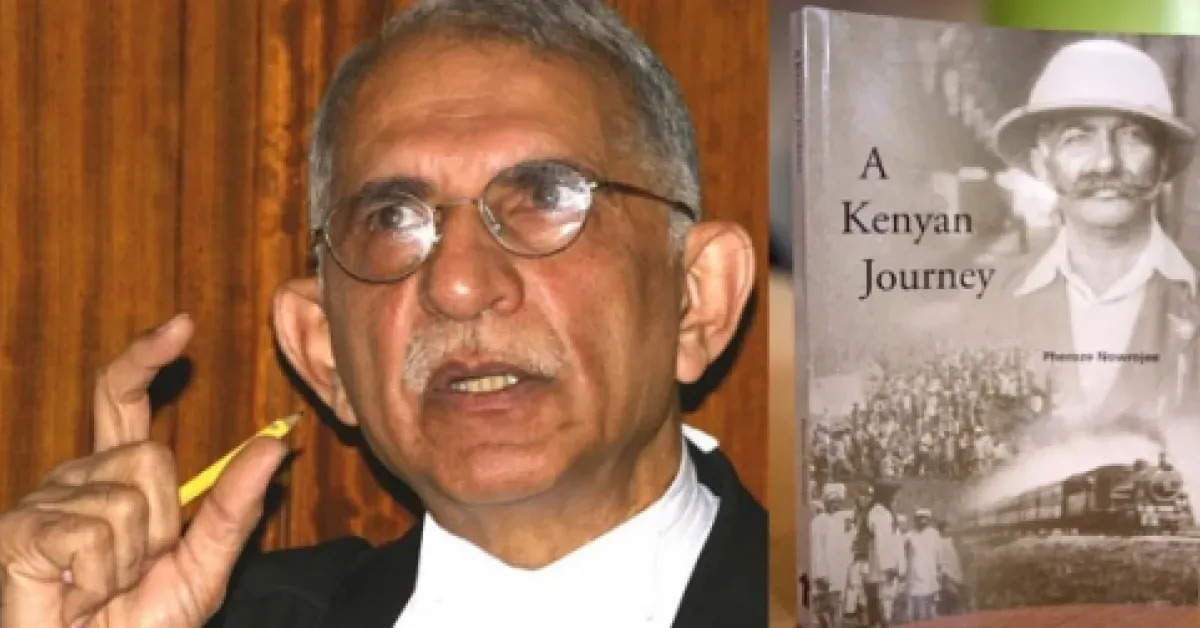Nairobi South Ward MCA Hon. Waithera Chege’s reading of a motion this week to commemorate the life of the late Pheroze Nowrojee (1941–2025) by naming a road after him was well received by community associations and residents in the city. This practice of memorializing people is well established and, in the case of the late Senior Counsel, offers another way of recognising more than three decades of public service to the constitution and his country.
According to Open Street Map, Nairobi County may have as many as 47,000 roads, streets, lanes, highways, alleys, and other thoroughfares. Of the 148 more well-known street names, less than ten percent are named after famous civic, political, and business leaders. The majority are named after former districts and other places in the country.
Given the primary purpose for naming roads is to distinguish between places, name clarity and uniqueness matter. Keeping road names short, easy to spell, and pronounce helps. Streets, avenues, and lanes are not the same. Streets are typically urban and pedestrian-friendly, and avenues are wider and landscaped for drive-through traffic. Lanes tend to be narrower and residential. Regardless of the types of roads, names should reflect a community’s values, history, and identity. Names chosen well and socialised across communities inspire, educate, and preserve national memory in public spaces.
One of the most endearing things about Nairobi and other Kenyan cities and towns is how roads got their names. My favourite road names are the ones that got phonetically upgraded. Roads like Ikolomani (gold mine), Kariakor and Kariobangi (the place British army porters and carrier corps were recruited from or had to carry their bags during World War I), or Kirigiti (the place where men played cricket). The naming of the Thika Superhighway remains one of my favourite leadership stories. When approached with the idea that the eight-lane highway, Kenya’s most ambitious road project at the time, be named after him, he asked, “Where does it go?”. He replied, “Call it Thika Highway then.” In that moment, he chose legacy over his ego and self-glorification.
Personally, I believe that names or locations should not be named after people who are still living. The fallibility of the human character and the possibility of human error are just too many. Our true character and our contribution to society only shows up when we have departed. The late Pheroze Nowrojee and his widow Viloo knew this when they successfully mounted a campaign to have a road named after freedom fighter Pio Gama Pinto in the Parklands/Westlands neighbourhood he lived and was tragically assassinated in 1965.
Pheroze Nowrojee himself passed away peacefully from a short illness in April 2025. At his funeral, leaders from across Kenya and the world honoured his legacy in July. Both as an Advocate of the High Courts of Kenya, Tanzania, and Zanzibar and lecturer, he consistently championed constitutionalism, human rights, and the rule of law. Most who encountered him recall a deep moral conviction, unshakable courage and legal brilliance. It is these qualities that made him a steadfast defender of freedom and human dignity for all Kenyans.
Understandably distracted by his legal prowess and command of any court he stood in, most Kenyans do not know that Pheroze was also a prolific poet. Unpublished, this poem reveals the love he held for Kenya.
The field is not the currency of our land,
The fence is not a border to our eye.
Hedgerows are not limits,
Nothing punctuated the might of this land.
Cloud, the curve of the earth, waters moving away,
These mark our edges,
Not by enclosure but by the freeing of spirit,
Setting for us the measure for our lives.
Honouring him with a road name, preferably in the Kilimani ward where he and his family lived, will preserve his legacy and inspire all who pass by. I urge city leaders and residents to honour his impact and support this tribute to one of our greatest and most humble of sons.
Irũngũ Houghton is Amnesty International Kenya Executive Director and writes in his personal capacity. Email: [email protected]


